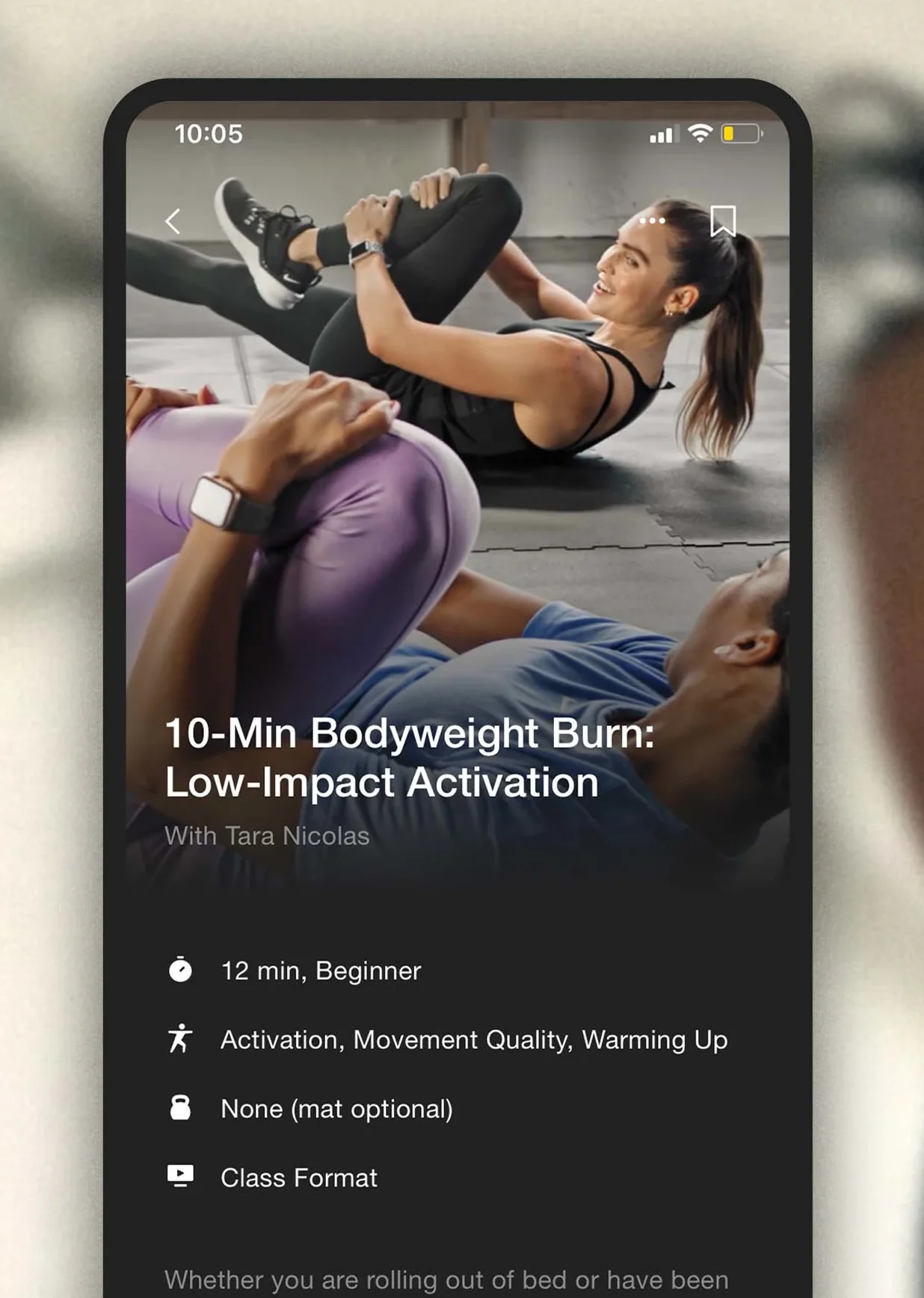Fitness Apps of 2024, Your Guide to Digital Wellness
In the ever-evolving landscape of digital fitness, 2024 stands as a hallmark year, introducing an array of fitness apps that transcend traditional workout methodologies, as well as upgrades to tried and tested programs that over the years have built passionate user bases.
These apps, equipped with cutting-edge technology and personalized features, have redefined the concept of wellness, making it more accessible, interactive, and tailored to individual needs. From precise calorie counting to dynamic workouts, these apps are not just tools but catalysts for transformation. They promise to revolutionize your fitness journey, offering innovative ways to track, engage, and motivate.
As we explore the top seven fitness apps of 2024, prepare to embark on a journey that reimagines health and fitness in the digital age.
MyFitnessPal
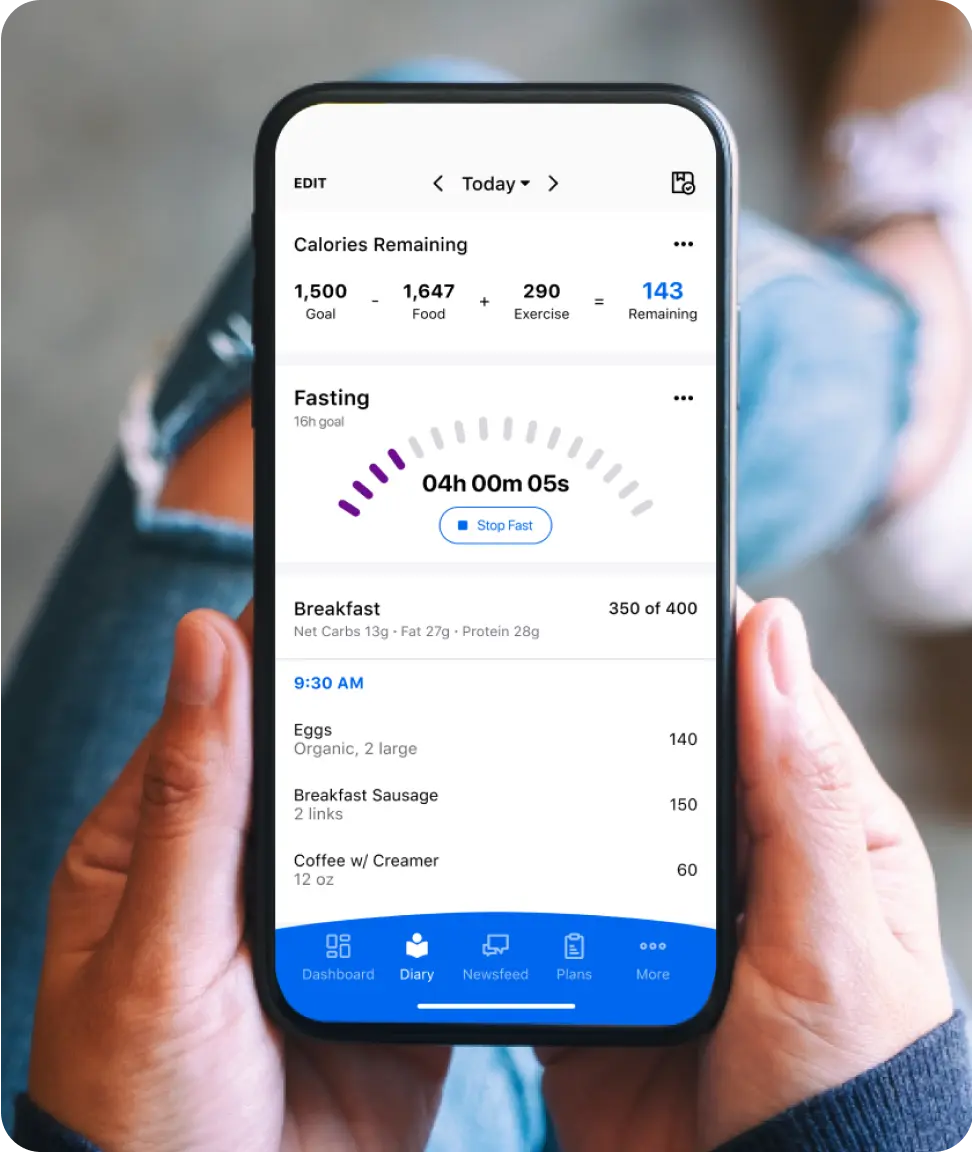 Does this name sound familiar? It should. A veteran in the world of calorie-counting apps, MyFitnessPal offers a robust food database and seamless integrations with other devices. Beyond being a calorie counter, it offers a detailed nutrition tracking system and workout plans tailored to users’ fitness goals, making it a comprehensive tool for those looking to closely monitor their diet and exercise.
Does this name sound familiar? It should. A veteran in the world of calorie-counting apps, MyFitnessPal offers a robust food database and seamless integrations with other devices. Beyond being a calorie counter, it offers a detailed nutrition tracking system and workout plans tailored to users’ fitness goals, making it a comprehensive tool for those looking to closely monitor their diet and exercise.
The app’s strength lies in its ability to provide detailed feedback on weekly weight loss and project goal achievement dates. It caters to both diet and exercise tracking and includes options for cardiovascular and strength training exercises.
Pros: MyFitnessPal’s accuracy and community-building features make it a standout option for those who need a bit of handholding to achieve their goals.
Cons: The app’s sheer number of features can be overwhelming for beginners.
For more information, visit MyFitnessPal.
Apple Fitness+
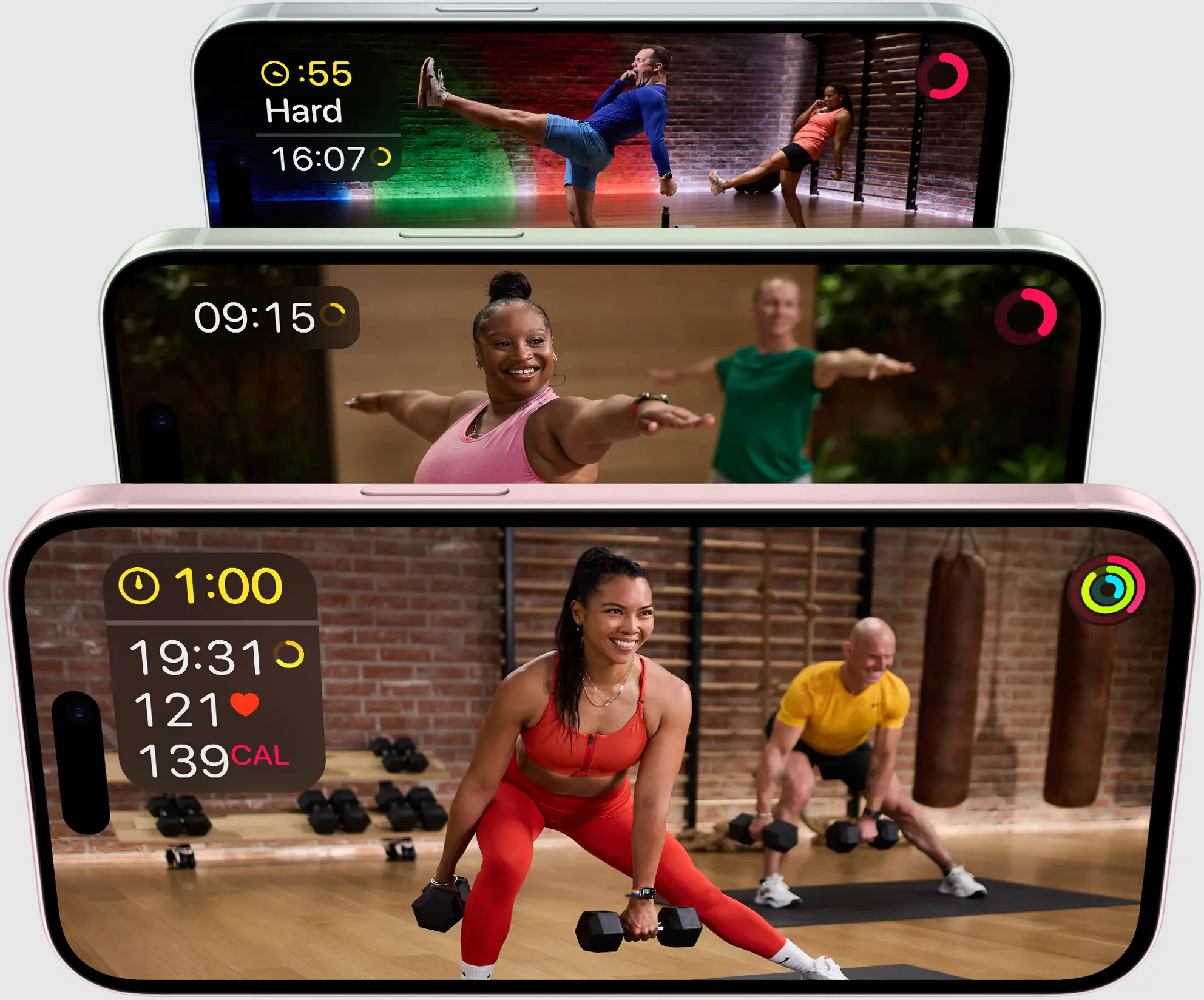 Designed for the Apple ecosystem, Apple Fitness+ provides a range of workout routines, including Pilates and yoga, with new additions every week that cater to all fitness levels. It’s a must-have for Apple Watch users, integrating seamlessly with the device to track various health metrics.
Designed for the Apple ecosystem, Apple Fitness+ provides a range of workout routines, including Pilates and yoga, with new additions every week that cater to all fitness levels. It’s a must-have for Apple Watch users, integrating seamlessly with the device to track various health metrics.
The system offers a large library of 4K Ultra HD fitness and wellness content, with over 4,000 workouts and meditation plans. Real-time metrics from the Apple Watch, such as heart rate and activity rings, are displayed onscreen, enhancing the workout experience. And if motivating personalities are what keep you coming back to in-person exercise classes, this app may be right for you: the trainers on Apply Fitness+ are known for their expertise and friendly approach, collaborating with Apple Music experts to create motivating playlists.
Pros: Perfectly integrated with the Apple ecosystem, particularly the Apple Watch, it offers a wide and rapidly expanding range of workouts. Its sleek design and high-quality training videos are highly praised.
Cons: It is limited to Apple users, which restricts access for those with other devices.
For more information, visit the Apple Fitness+ official page.
Jefit
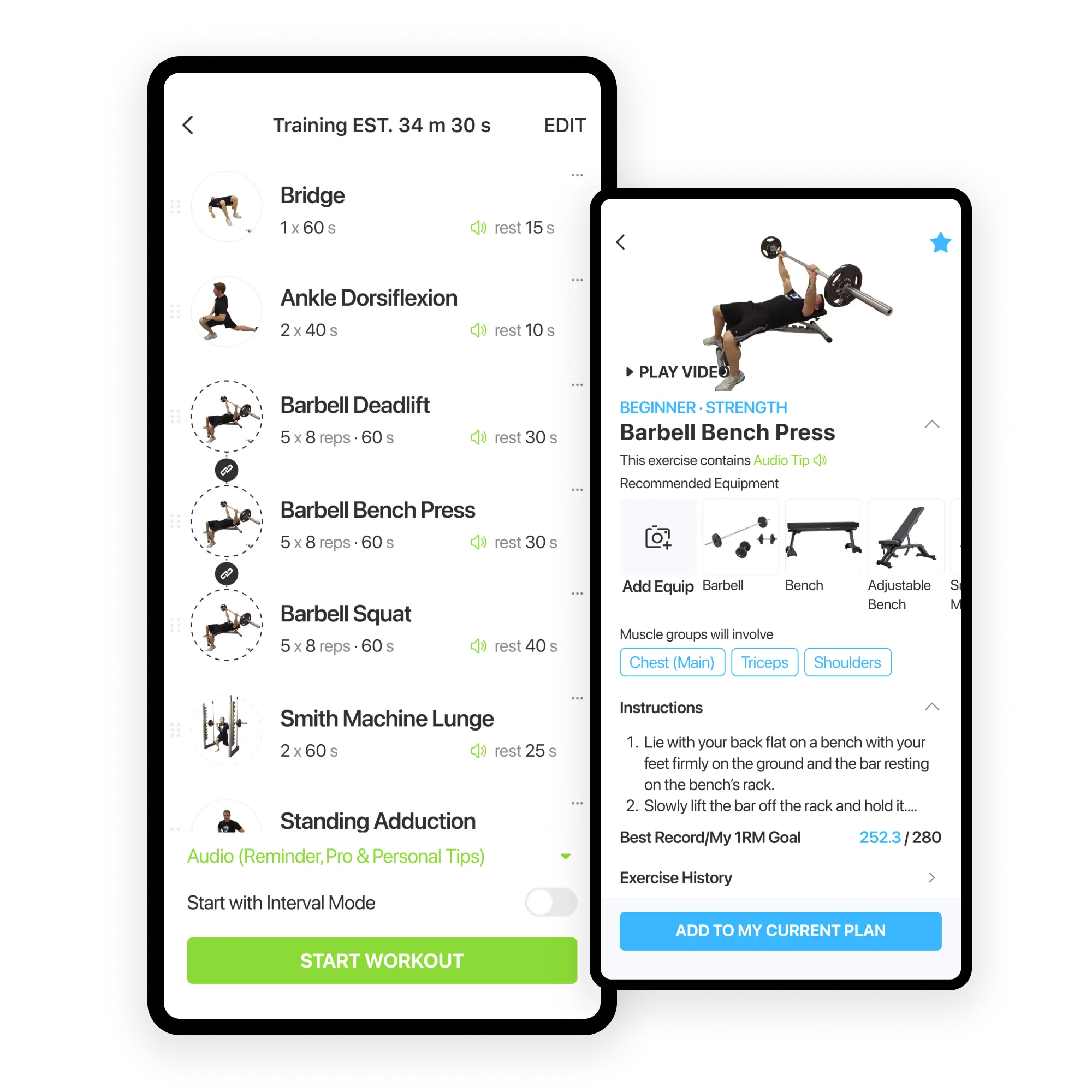 Focused on resistance training, Jefit is a comprehensive app for tracking all kinds of workouts but is particularly great for weightlifting enthusiasts looking for tips and tricks to perfect their execution.
Focused on resistance training, Jefit is a comprehensive app for tracking all kinds of workouts but is particularly great for weightlifting enthusiasts looking for tips and tricks to perfect their execution.
What makes it stand out from the crowd is that its more than 1,400 exercises, sorted by target muscles, works in both gym and home environments, and comes with in-depth animations to ensure correct form. Even better, it integrates with smartwatches for seamless training and logging, allowing users to track their workout time, weightlifting progress, and body measurements while enhancing their understanding of muscle recovery rates and allowing them to set one-rep-max goals.
Pros: The freemium model allows users budget-friendly access to expertly designed workout plans and customization.
Cons: The premium features might be necessary for a more enhanced experience, which requires a subscription.
For more information, visit Jefit.
Google Fit
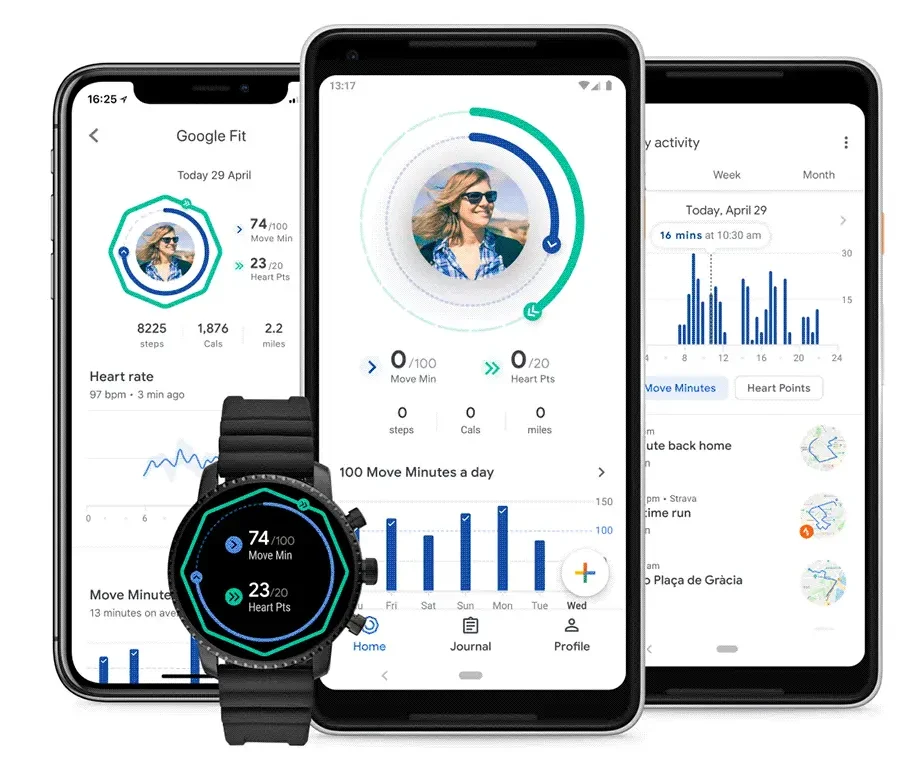 Though you have likely already guessed, Google Fit is a health-tracking platform developed by Google. Not just a fitness tracker, Google Fit integrates with a multitude of apps and wearables, acting as a central hub for all fitness data. It provides customized health coaching tips in collaboration with the World Health Organization and the American Heart Association and is an excellent choice for those who love data and want a unified view of their health.
Though you have likely already guessed, Google Fit is a health-tracking platform developed by Google. Not just a fitness tracker, Google Fit integrates with a multitude of apps and wearables, acting as a central hub for all fitness data. It provides customized health coaching tips in collaboration with the World Health Organization and the American Heart Association and is an excellent choice for those who love data and want a unified view of their health.
The app, designed to provide a simple and efficient way to track health and fitness data, is known for its user-friendly interface and points systems, such as its Heart Points and Move Minutes for their activities, which add another incentive for those who may find themselves less motivated when it comes to exercise.
Pros: By encouraging activity through point-based rewards, it’s a great choice for those who need the lure of incentives to keep them on track.
Cons: When compared to specialized fitness apps, it doesn’t have as many advanced fitness options. Those who are looking for more detailed data analysis may require a more robust program.
For more information, visit Google Fit.
8Fit
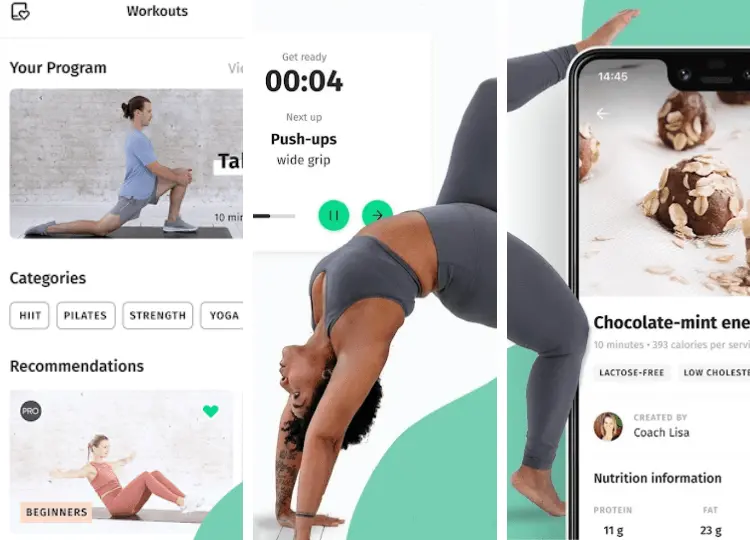 This app takes a holistic approach to health, offering home workouts, personalized meal plans, and guided meditations, with a wide range of articles that cover various aspects of wellness, from nutrition to lifestyle.
This app takes a holistic approach to health, offering home workouts, personalized meal plans, and guided meditations, with a wide range of articles that cover various aspects of wellness, from nutrition to lifestyle.
Focusing on more than just the body, 8Fit covers a variety of health concerns while maintaining a body-positive approach. As a bonus, its interface is clear and easy to navigate – users who find themselves overwhelmed by other data-driven apps may be more comfortable with its setup.
8Fit excels in habit tracking, which plays a crucial role in promoting consistent health-promoting behaviours. The app uses this feature to encourage users to stay on track with their fitness and nutrition goals, fostering a sense of accomplishment as they progress.
Pros: By encouraging new behaviours related to movement, nutrition, and mindfulness, 8Fit helps users make long-term lifestyle changes rather than seeking quick fixes.
Cons: Since there aren’t many options for self-created workouts, users who prefer to build their own plans might find that the app doesn’t completely suit their needs.
For more information, visit 8Fit.
Strava
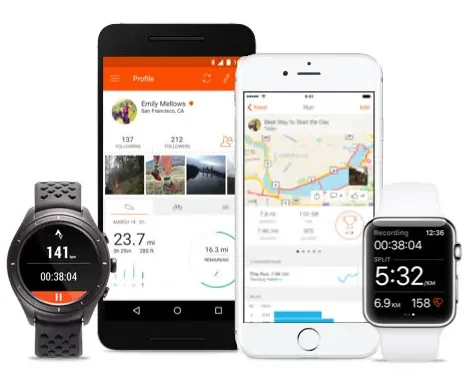 Strava is the go-to app for outdoor fitness enthusiasts, particularly runners and cyclists. Its accurate GPS tracker and workout analytics make it a favorite among athletes.
Strava is the go-to app for outdoor fitness enthusiasts, particularly runners and cyclists. Its accurate GPS tracker and workout analytics make it a favorite among athletes.
Its key features include activity recording with detailed maps and performance data, analysis tools offering extensive workout metrics, and a social network element to connect with fellow athletes. The app also supports multiple sports, from yoga to rock climbing, and provides resources like route planning, clubs, and challenges.
A subscription version offers enhanced tracking and analysis features, along with safety tools like Beacon, which shares real-time locations with safety contacts.
Pros: As many outdoor exercisers love the community aspect of their sport, the network-building features of Strava can be a big draw.
Cons: The app doesn’t offer as many features for indoor workouts or non-cardio activities, so those who prefer the gym to the trails should likely look elsewhere.
For more information, visit Strava’s website.
Nike Training Club
A longtime favourite of many exercisers, the Nike Training Club app is a comprehensive fitness platform that offers a wide range of workouts, including strength training, yoga, HIIT, and more, tailored for various fitness levels. It features expert guidance from elite Nike trainers, personalized workout plans, and nutritional advice to complement fitness routines. Even better, the app’s user-friendly interface and community features, like the ability to share workouts with friends, enhance the training experience.
Pros: Looking for an app to help you dip your toe into a new type of training? This one is backed by numerous experts and has a track record that proves its effectiveness.
Cons: Like some of the other apps on this list, its advanced features may require a subscription for full access.
For more information, visit Nike’s official page.
As we conclude our exploration of the top seven most talked-about fitness apps of 2024, it’s clear that the future of fitness is not just about physical exertion; it’s about a holistic approach to wellness. These apps, with their diverse capabilities, stand as testaments to the power of technology in enhancing our health journeys. They offer more than just workout tracking – they provide a community, a source of motivation, and a personalized guide to achieving our health goals. As you choose your digital fitness companion from these top contenders, remember that each step, each swipe, and each interaction brings you closer to a healthier, more fulfilled you.
Here’s to a new, healthier you in 2024!


